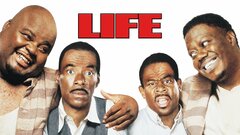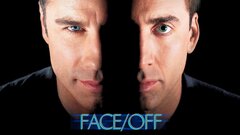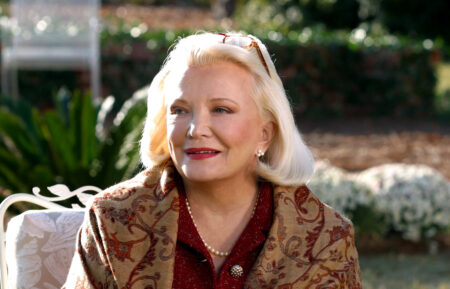Nick Cassavetes began his career as a film and television actor, but made a stronger impact when he discovered his talent for writing and directing. He was born into independent film royalty as the son of Oscar-nominated writer-director-actor John Cassavetes and Oscar-nominated actress Gena Rowlands.
Cassavetes' family tearjerkers "The Notebook" (2004) and "My Sister's Keeper" (2009) were a far cry from the cinéma vérité style favored by his father, though he shared a thematic interest in the unseen worlds lurking behind the American dream landscape in "She's So Lovely" (1997) and "Alpha Dog" (2007). True to the family name, Cassavetes was dedicated to building a body of character-driven dramas and bringing a great deal of emotion to the movie screen.
The firstborn child of actress Gena Rowlands and actor-director John Cassavetes, the future filmmaker was born May 21, 1959 in New York City. He made several screen appearances in his father's films while growing up, including "Husbands" (1970) and "A Woman Under the Influence" (1974), though he did yearn for a movie career - due perhaps to his troubled youth with his notoriously difficult and explosive filmmaker father.
Sports was the younger Cassavetes main interest, and he attended Syracuse University on a basketball scholarship until a court injury sidelined the 6'4" coed's chances of turning pro. He experienced some success when he subsequently became involved in theater, and eventually shifted his major from literature to drama and graduated with a Bachelor of Arts degree in 1976. Cassavetes went on to train further at the American Academy of Dramatic Arts, which both of his parents had also attended.
During the 1980s, Cassavetes earned a living in mostly direct-to-video and B-movies, with the exception of a supporting role in Peter Bogdanovich's award-winning drama "Mask" (1985), starring Eric Stoltz and Cher. Supporting work in "Assault of the Killer Bimbos" (1988) and a string of guest spots on TV crime dramas followed. He joined several other Hollywood offspring in the action adventure "Young Commandos" (1991) before starring in the three 1993 erotic thrillers "Sins of Desire," "Body of Influence" and "Sins of the Night".
In 1994, the actor finally earned some positive attention for his portrayal of award-winning playwright and screenwriter Robert E. Sherwood in "Mrs. Parker and the Vicious Circle" (1994), director Alan Rudolph's take on the artists and wits that made up the celebrated Algonquin Round Table of the 1920s.
Several more low-budget thrillers followed. In 1996, Cassavetes made his writing and directing debut with "Unhook the Stars," starring Rowlands as a sixty-something widow with grown children who must deal with the sudden emptiness of her life. The film generally garnered positive reviews, and the following year the fledgling filmmaker's sophomore effort, "She's So Lovely" (1997), premiered at the Cannes Film Festival.
The movie was developed from an unfinished, unproduced script by father John Cassavetes, and focused on a woman caught between her present happily married state and her past, represented by her first husband. Co-starring real-life marrieds Robin Wright and Sean Penn and featuring John Travolta, the drama earned the Best Actor Prize for Penn at Cannes and showed audiences that, while visually, Cassavetes' style was very different from his father's, he shared his same talent for conveying a great deal of emotion on the movie screen.
Cassavetes returned in front of the camera with a villainous turn in the Nicholas Cage/John Travolta actioner "Face/Off" (1997), and appeared in another villainous supporting role in Ted Demme's prison comedy "Life" (1998), starring Eddie Murphy and Martin Lawrence. In another high-profile supporting role, Cassavetes appeared alongside Johnny Depp as a NASA astronaut who witnesses a life-changing event in outer space in "The Astronaut's Wife" (1999).
Off-camera, Cassavetes teamed with buddy Ted Demme again to co-write the latter's Academy Award-nominated cocaine chronicle, "Blow" (2000). In 2003, Cassavetes scripted the short film directorial debut of actor Kevin Connolly, a buddy bonding dramedy called "Whatever We Do" (2003).
Then, inspired by his own real-life experiences dealing with the treatment of his own seriously ill child, Cassavetes was inspired to direct "John Q" (2002), starring Denzel Washington as a father pushed to extreme measures when the health care system fails to come through for his sick son. While a well-assembled thriller with an intriguing social message at its core, the film did not spark major critical or commercial fires.
His follow-up, the lush and sentimental period love story "The Notebook" (2004), based on the best-selling Nicholas Sparks novel, marked Cassavetes first blockbuster. Working with screenwriter Jeremy Leven, Cassavetes smartly restructured the threadbare novel into a sophisticated storyline with a hint of mystery, one focusing on the memories of young star-crossed lovers (Rachel McAdams, Ryan Gosling) as told by nursing home resident James Garner, and another featuring the elderly version of that story's leading lady, played by Rowlands.
A three-hanky film in the best sense of the expression, "The Notebook" demonstrated a new level of skill for Cassavetes, both cinematically and with his actors. Cassavetes moved away from sentimental territory and into true crime with "Alpha Dog" (2006), based on a true story of wealthy, suburban kids in Los Angeles who emulate movie criminals and gangsta rap but end up in over their heads when a drug deal turns into a kidnapping and murder.
Critics were divided over the ultimate effectiveness of "Alpha Dog" as they were over Cassavetes' next film, "My Sister's Keeper" (2009). An adaptation of Jodi Picoult's novel about a family facing moral dilemmas in deciding how to treat their terminally ill daughter, the film's heavy-handed melodrama detracted from the complicated issues involved. Cassavetes did, however, direct excellent performances from Cameron Diaz in her first "parent" role, as well as child actors Abigail Breslin and Sofia Vassilieva as the family's young daughters.
By Susan Clarke














































































